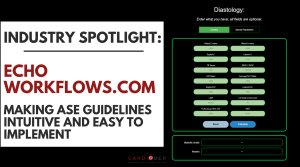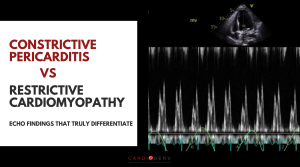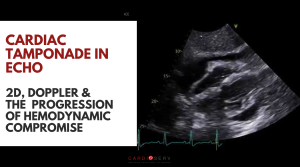Last Updated on January 30, 2024 by Hannes van der Merwe
So over the past year we saw a lot of changes regarding the IAC accreditation quality improvement requirements across all modalities. Finally, as the dust settled we were left with a standardized program across the board. We expected the new QI to be difficult and time consuming so it took a while for us to get our head around just how simplified the whole system now is! We here at CardioServ are all loving the new workflow and we would like to share what we enjoy most about the new requirements.
The old requirements were broken down into separate categories that required us to pull more reports and more studies to complete each measure. The new IAC QI workflow is now based on case studies instead. What does that mean? It means that for each imaging modality you just pull 2 cases and review them from start to finish. Whether you are selecting 2 echocardiograms, 2 carotid vascular studies or 2 TEEs the process is the same!
CASE STUDY REVIEW MADE SIMPLE
- Select a case study
- Assess the indication for appropriateness
- Check the report for completeness and timeliness
- Review the technical quality
- Evaluate the Interpretive quality
- IF there is clinical correlation for this study …. Review it
IT CAN’T BE THAT EASY!
Oh but yes it can! If you are in need of simplifying your QI program you can even use the sample forms on the Intersocietal Accreditation Commission’s website. They have sample forms for each modality. If you are looking to create more in-depth evaluation you still can build a robust program. As a consulting firm that focuses on building QI programs for hospitals and physician practices we still use this simple concept of taking a case and reviewing each aspect of the study but we pad in some extras.
A LITTLE EXTRA PADDING
For some labs they feel that that QI forms don’t provide an opportunity for an in-depth analysis of their lab. Not a problem! There is plenty of room for a robust QI program hiding within the Technical Quality Measure and the Interpretive Quality Measure.
TECHNICAL QUALITY
We use the technical quality measure to provide a detailed assessment of the image and measurement techniques used during an exam. There is ample opportunity to review a study and discuss best way to calculate, quantify and measure disease and structures. Remember the sample check list forms provided by IAC is just that…a sample. You can create your own lab-specific check list and bling it out as much as you like! Go ahead and use the technical measure to ensure correct quantification techniques are used, artifacts are minimized, images are optimized, scanning protocols are followed, etc. It’s your QI program so personalize it!
INTERPRETIVE QUALITY
The same concept follows for Interpretive Quality as we mentioned above with technical quality. We still track variability within our client’s facilities and we believe in group peer review with all physicians participating. We have all physicians review the same 2 case studies and provide feedback on specifics like ejection fraction, valvular disease quantification, vascular stenosis, etc. This way we can look for outliers and ensure that the lab follows standardized diagnostic criteria.
PICK A PLAN
This is good news for all labs with diverse needs, resources and goals. You get to pick a plan that works for you! For labs with limited time and/or limited support from all physicians it’s ok to assign a physician or sonographer the task of reviewing 2 case studies per quarter. For a lab looking to assess variability or with a strong support system in place you can have all physicians participate in group peer review, complete in-depth analysis of the technical quality of your studies and generate more data to review and track.
ROBUST AND EASY
Now you’re talking our language! We believe there is a way to involve all physicians in an active robust peer review program that is easy to complete. We have mentioned before that we believe if you make a task easy or fun that it will get completed. Well we have done just that! We have made group participation both easy and fun using the latest innovative technology. We will be revealing our new QI platform in the upcoming weeks so stay tuned!
In the meantime, enjoy knowing that in 6 simple steps you can meet the accreditation QI requirements for a case study review:
- Select a case study
- Assess the indication for appropriateness
- Check the report for completeness and timeliness
- Review the technical quality
- Evaluate the Interpretive quality
- IF there is clinical correlation for this study …. Review it







